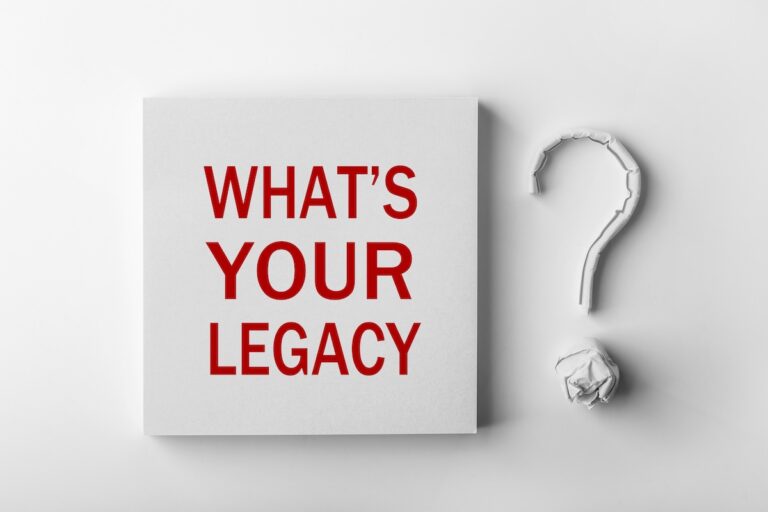As we enter the third year since the pandemic started, we are seeing that the changes caused by COVID-19 are having a lasting impact in the workplace. In 2023, organisations will be more diverse, distributed and virtual than ever before. Organisations need to adapt to this changing world of work while addressing other challenges. Those include a competitive recruitment market, an economic crisis and an exhausted workforce.
Well-being, flexible working, and diversity, equity and inclusion (DEI) have been top HR priorities as organisations worked to adjust to massive disruption. In 2023, we’ll see many of these continue and evolve as organisations focus on communication, skills development, and relationship management.
In this blog post we look at the implications for career management and mentoring in 2023.
1. Re-recruiting the “quiet quitters”
Anyone on LinkedIn remembers the viral wave of “quiet quitting” headlines from the second half of 2022: the idea of employees refusing to go “above and beyond” and doing the minimum required in their jobs. When employees psychologically quit but stay, organisations keep people but lose skills. In a costly competitive recruitment market, organisations cannot afford this. In 2023, it’s time to ‘re-recruit’ these disengaged employees. Engaging them in career conversations can reveal what they are looking for from their working lives. Only then, can managers and HR support them by making their work more motivating and making their achievements worthwhile.
Employee development is also a factor in driving employee engagement. Through career conversations, managers can find out what success looks like for the employee. They can then put a plan in place to support their growth towards that.
2. Adapting to hybrid and remote working
We are entering a more permanent era of flexible work arrangements. Home, remote and hybrid working are set to become standard – at least for knowledge workers. Although its early days, initial reports suggest this flexibility leads to increased happiness and higher productivity.
However, there are also challenges. In 2023, employers and managers will need to find a way to manage the balance between expectations of flexibility and a need for accountability. That will rely on managers having the skills to manage performance remotely and have regular check ins. They will need coaching skills to empower employees to take ownership of their performance at a distance. At the same time, employees will need the skills to maximise their productivity. They will also need to manage their energy levels and maintain an effective work-life balance.
3. Upskilling managers to respond to increasing demands and expectations
Today’s working environment has become increasingly complicated with increasing demands on managers. They feel pressure from above and below: they must implement corporate strategy with regard to hybrid work while also providing employees with a sense of purpose, connection and career opportunities.
Working away from the office can lead to employees feeling disconnected from the organisation. In a hybrid world, 60% of employees say their direct manager is their most regular connection to the organisation. That working relationship is therefore more important than ever. Managers are responsible for establishing and maintaining trust in the relationship. They are also responsible for facilitating collaboration, and enabling employee visibility across the organisation.
The pressures of remote work and employees’ evolving expectations have amplified poor management. Emotionally distant management is a thing of the past. Employees want and need managers who are authentic and empathetic. In 2023, managers need support to develop these capabilities. They need training, mentoring and resources to increase their soft skills.
4. Retaining and mobilising talent
To fill critical roles in 2023, organisations will need to become more creative in how they use their existing talent. They will need to rethink outdated assumptions about qualifications. Instead, they will need to become more comfortable assessing employees based on their current skills, their ability to perform and their potential to take on new responsibilities. They will also need to support employees to develop their careers along nonlinear career paths. Thirdly, they will need to establish processes to identify and mobilise talent across the organisation.
Historically, many employees remained in fairly similar roles for their entire careers. Today, the pace of technological and economic change means the average worker might need to frequently reskill and upskill, and even change jobs, to preserve their opportunities for growth and advancement.
Dovetailing employee’s development needs with the changing skills requirements of the organnisation can achieve a win-win solution. It can provide employees with the growth they are looking for and it can avoid the high costs of recruitment by developing skills from within.
5. Supporting employee well-being
Many people are still experiencing mental health challenges as a result of the turbulence of recent times. These may be exacerbated by current challenges such as the cost-of-living crisis. Burnout, exhaustion and career insecurity — all heightened during the pandemic — negatively impact performance.
Research by Gartner shows that 82% employees feel that their organisations should see them as a whole person, rather than simply an employee. In the coming year, the best organisations will do two things:
- Implement organisational initiatives that support and promote employee well-being (like proactive rest days).
- Provide employees with the opportunities to talk through challenges and difficult topics without judgment or consequences. That support might be through conversations with their manager, a mentor, peers, a counsellor or a mental health first sider.
6. Facilitating diversity, equality and inclusion (DEI) through mentoring
In 2023, mentoring can play a significant role in enabling diversity, equality, and inclusion in several ways. First and foremost, a mentor can serve as a role model and advocate for their mentee. The mentor can help them navigate potentially challenging or discriminatory situations and provide guidance and support as they work towards their goals. A mentor can also help their mentee develop the skills, confidence, and networks needed to succeed in their field. This can be especially important for underrepresented groups who may face additional barriers to advancement.
Mentoring can also be an important tool for organisations seeking to promote diversity, equality, and inclusion (DEI). By pairing mentees with mentors from underrepresented groups, organisations can help create a more diverse and inclusive culture, as well as provide role models and support for individuals who may be in the minority within their organisation. Additionally, organisations can use mentoring as a way to identify and address potential barriers to diversity, equality, and inclusion within the organisation, and to create opportunities for all employees to succeed and thrive.
7. The influence of Artificial Intelligence (AI) in career development
The emergence of ChatGPT, an advanced AI tool available to the public, has raised public awareness of the importance and rapid growth of artificial intelligence (AI).
Artificial intelligence (AI) is having a significant impact on career development and the world of work as a whole. One way that AI is influencing career development is by automating certain tasks and processes, which can lead to the creation of new job roles that need new skills and expertise. For example, as AI becomes more prevalent in customer service, there may be a greater demand for people with expertise in designing and implementing AI systems, as well as for professionals who can interpret and analyse the data generated by these systems.
On the other hand, AI is also automating some job roles and tasks, which can lead to job displacement. For example, AI-powered chatbots are increasingly being used to handle customer service inquiries, which can reduce the need for human customer service representatives. Therefore, it is important for individuals to stay up to date with the latest developments in AI and to consider developing skills in areas that will be in demand as AI becomes more prevalent in the workforce. Companies will need to invest in upskilling and reskilling their employees to work with these technologies.
AI is a tool that can support career development. Organisations are also using AI to help employees develop their own careers. For example, Fuel50 is a skills-based AI Talent Marketplace. The AI tool shows which skills still might be needed for certain roles, so that employees can direct their professional development to support their career development goals.
Ultimately, the task of career management and mentoring in 2023 is to make sure that organisations are upskilling managers and employees with the skills to adapt to the new and still-changing world of work.
The best organisations will have a strong focus on career management and mentoring to engage, retain and develop their talent in a competitive marketplace.
Find out how we can help you with these career management and mentoring challenges through our services.



